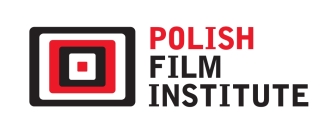The MEDIA Programme: Framing European Cinema
Abstract
The article is a chapter 2 from the book Euro-Visions. Europe in Contemporary Cinema (2016) by Mariana Liz. It opens with an overview of the key issues in contemporary European cinema, as well as the main features of the European film industry, setting the context for the analysis of the EU MEDIA programme. After describing the emergence, main goals and initiatives of MEDIA, the author reports on a discussion about the promotion of this EU programme. At stake here is the way in which the EU’s vision of European cinema is projected to a wider public. Liz also looks at how the idea of Europe frames institutional discussions of the audio-visual industries and examines fiction features released with the support of MEDIA. Through close textual analysis, the author highlights ideas of Europe in the form and content of these films. While over 200 films are considered, case studies include the films that are “advertised” most frequently by the European Commission, for instance, in memos and press releases. Case studies originate from as many different European nations as possible, including “big” and “small” countries and audio-visual industries, and belong to different genres, comprising both big-budget and independent productions.
- The text is a translation of the chapter The MEDIA Programme: Framing European Cinema from the book by Mariana Liz Euro-Visions: Europe in Contemporary Cinema. © Mariana Liz, 2016, Euro-Visions: Europe in Contemporary Cinema, Bloomsbury Academic – An imprint of Bloomsbury Publishing Inc., New York – London – Oxford – New Delhi – Sydney.
Due to copyright restrictions the article is available in the print version only. (Non-reviewed material).
Keywords:
European film industry, European Union MEDIA programme, European CommissionReferences
Bergfelder, Tim. Popular European Cinema in the 2000s.: Cinephilia, Genre and Heritage, w: Europeanness of European Cinema. ed. Mary Harrod, Mariana Liz, Alissa Timoshkina. London and New York: I.B. Tauris, 2015: 33-58.
DOI: https://doi.org/10.5040/9780755694822.ch-002
Google Scholar
Betz, Mark. Beyond the Subtitle: Remapping European Art Cinema. London, Minneapolis: University of Minnesota Press, 2000.
Google Scholar
Brooks, Xan. “Can Cannes Spring a Late Surprise?”, Guardian 21.05.2009
Google Scholar
Collins, Richard. Broadcasting and Audio-Visual Policy in the European Single Market. London: John Libbey, 1993.
Google Scholar
Commission of the European Communities, Conclusions of the Presidency – European Council, Rodos 2-3.12.1988.
Google Scholar
Dale, Martin. Europa, Europa: Developing the European Film Industry. Paris: Académie Carat and MEDIA Business School, 1992.
Google Scholar
De Valck, Marijke. Film Festival. From European Geopolitics to Global Cinephilia. Amsterdam: Amsterdam University Press, 2007.
DOI: https://doi.org/10.1017/9789048506729
Google Scholar
Doyle, Gillian, Philip Schlesinger, Raymond Boyle, Lisa W. Kelly. The Rise and Fall of the UK Film Council. Edinburgh: Edinburgh University Press, 2015.
DOI: https://doi.org/10.3366/edinburgh/9780748698233.001.0001
Google Scholar
Elsaesser, Thomas. “European Cinema into the Twenty First Century: Enlarging the Context?” In The Europeanness of European Cinema: Identity, Meanings, Globalisation. ed. M. Harrod, M. Liz, A. Timoshkina. London: I. B Tauris, 2015: 17-32.
DOI: https://doi.org/10.5040/9780755694822.ch-001
Google Scholar
Erdogan, Nezih. “Star Director as Symptom: Reflections on the Reception of Fatih Akin in the Turkish Media”. New Cinema – Journal of Contemporary Film 7:1 (2009): 27-38.
DOI: https://doi.org/10.1386/ncin.7.1.27_1
Google Scholar
Europe and Love in Cinema, ed. L. Passerini, J. Labanyi, K. Diehl. Bristol: Intellect, 2012.
Google Scholar
Haastrup, Helle Kanik. “Popular European Art Film: Challenging Narratives and Engaging Characters”. In European Film and Media. ed. L. Højbjerg, H. Søndergaard. Copenhagen: Museum Tusculanum Press and University of Copenhagen, 2006: 263-283.
Google Scholar
Jäckel, Anne. European Film Industries. London: BFI, 2003.
DOI: https://doi.org/10.5040/9781838711184
Google Scholar
Powell, Nik. The State of European Cinema. A New Dose of Reality. London: Cassel, 1996.
Google Scholar
Shore, Cris. Building Europe: The Cultural Politics of European Integration. London: Routledge, 2000.
Google Scholar
The European Community Policy in the Audiovisual Field – Legal and Political Texts, Office of the Official Publications of the European Communities, Luxembourg 1990.
Google Scholar
Vasconcelos, M. Report by the Think Tank on the Audiovisual Politics, w: Office of the Official Publications of the European Communities. Luxembourg 1994.
Google Scholar
Wood, Mary. Cultural Space as Political Metaphor: The Case of the European „Quality” Film, 2000, http://mediasalles.it/crl_wood.htm
Google Scholar
Authors
Mariana Lizkwartalnik.filmowy@ispan.pl
University of Lisbon Portugal
Doktorat obroniła w 2012 r. na King’s College London. Jest autorką książki Euro-Visions. Europe in Contemporary Cinema (2016), redaktorką tomu Portugal’s Global Cinema (2017) i współredaktorką antologii The Europeanness of European Cinema (2015). Obecnie jest stypendystką w ramach programu podoktorskiego w Instituto de Ciências na Uniwersytecie Lizbońskim. Jej projekt, finansowany przez Portugalskie Ministerstwo Nauki, dotyczy badań nad europejskimi miastami, kinem i turyzmem.
Statistics
Abstract views: 102License
Copyright (c) 2018 Mariana LizThe author grants the publisher a royalty-free non-exclusive licence (CC BY 4.0) to use the article in Kwartalnik Filmowy, retains full copyright, and agrees to identify the work as first having been published in Kwartalnik Filmowy should it be published or used again (download licence agreement). The journal is published under the CC BY 4.0 licence. By submitting an article, the author agrees to make it available under this licence.
In issues from 105-106 (2019) to 119 (2022) all articles were published under the CC BY-NC-ND 4.0 licence. During this period the authors granted a royalty-free non-exclusive licence (CC BY-ND 4.0) to use their article in „Kwartalnik Filmowy”, retained full copyright, and agreed to identify the work as first having been published in our journal should it be published or used again.











